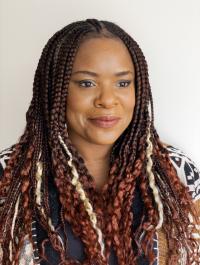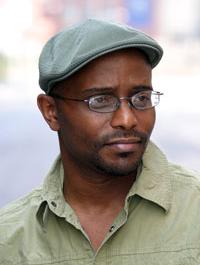From a side lane soft with lunar mulch
and thistledown I saw them, clipped alone
on a clothesline, a pair of diaphanous panties
as wide as an elephant’s forehead.
I sighed across the boy-mown lawn
and they shook as though they shed blessings
to the moon and her tongue-tied exiles.
Who would dare pour such panties
along his arms and throat? A murderer, maybe.
The Milky Way was pavement
compared to their luxury. I knew
I wouldn’t outwalk their whispers that night.
Next morning my feet felt like mallets.
I was back in the world where people
wear out, embarrassed by beautiful things,
and a garment fit for a goddess is nothing but big.





